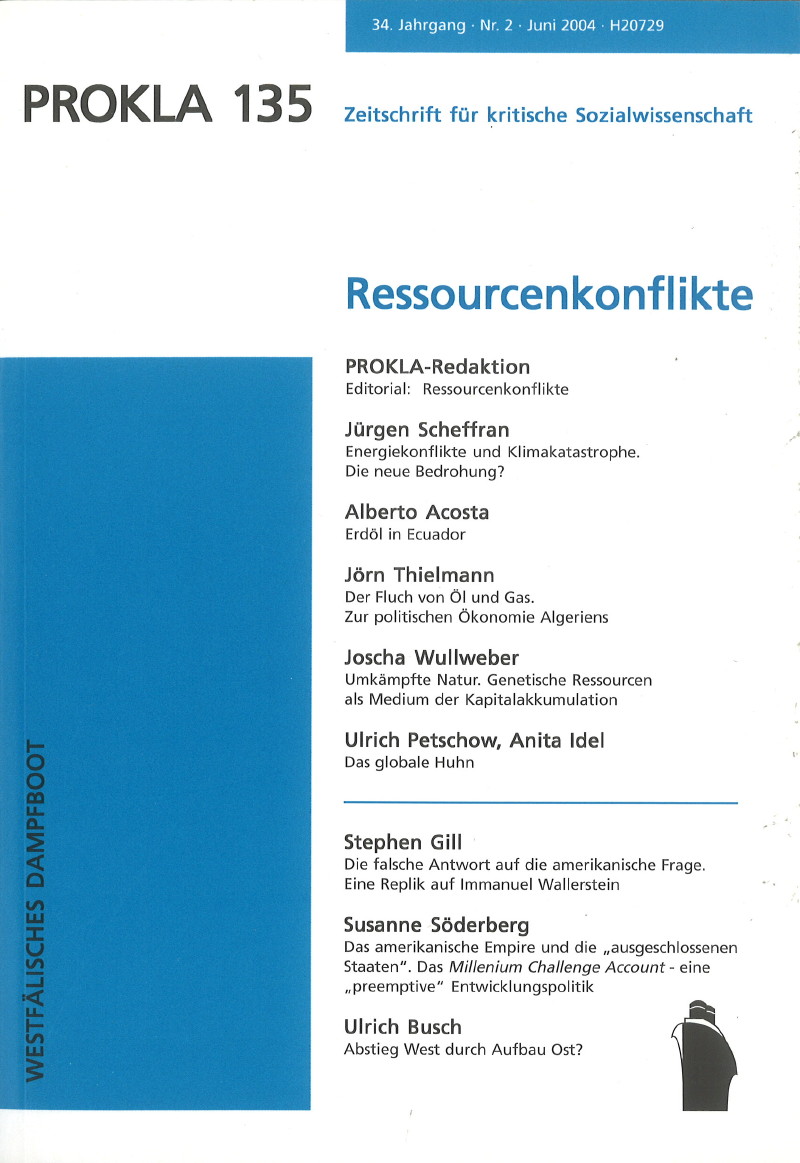Energiekonflikte und Klimakatastrophe
Die neue Bedrohung?
DOI:
https://doi.org/10.32387/prokla.v34i135.629Schlagworte:
Konflikte, Energier, Klimawandel, Umwelt, RessourcenkonflikteAbstract
During the 21st century the increased energy demand will meet a minimum of ensured energy reserves. The growing scarcity of fossil fuels, in particular the foreseeable end of the oil age, provokes the danger of violent conflict. In a Pentagon study the potentially dramatic consequences of rapid climate change for the security of the United States are described. As global and local carrying capacities are reduced, tensions could increase around the world. Those who can afford may build virtual fortresses to preserve resources for themselves, while poorer nations may struggle for access to food, clean water, or energy. Nuclear power is a complex, faulty and centralized large-scale technology, providing the basis for nuclear weapons development. In order to achieve the transition from the conflict-prone fossil-nuclear to a more peaceful and sustainable energy supply which preventively avoids conflict, a comprehensive set of measures is required, including energy saving, efficiency gains, renewable energy, natural and social guardrails, the improvement of cooperation, dialog and participation among stakeholders.






